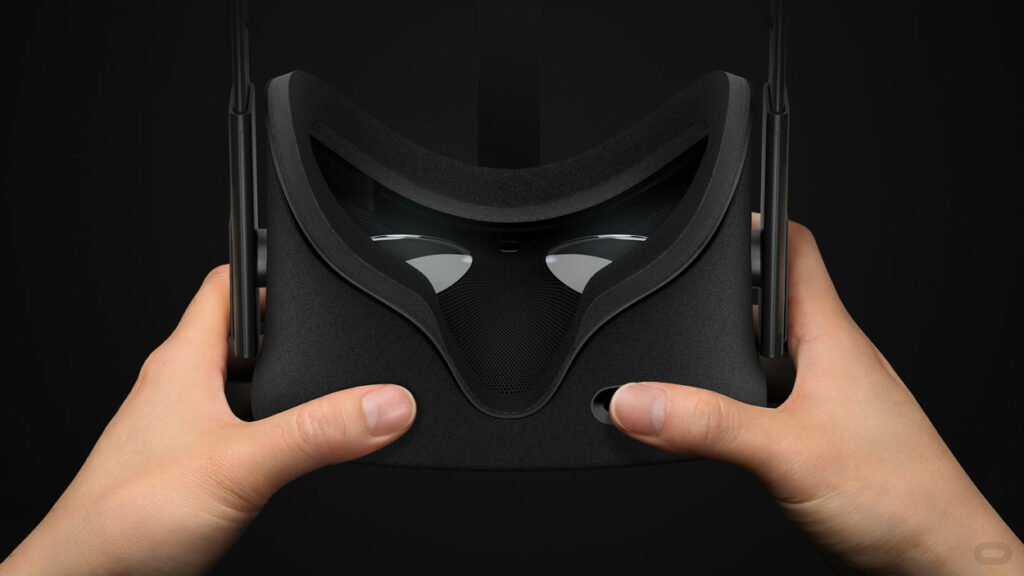A Prediction About Virtual Reality
Yesterday was a big day for VR nerds. Oculus, the poster child for the VR revolution, is now shipping it’s first VR headset and it’s started to arrive on the doorsteps of eagerly awaiting gamers and tech enthusiasts. This means it’s also a time for loads of news coverage and hype about how virtual reality is going to change the world, impacting work, play, education and a dozen other things. And don’t get me wrong–I think it will. But here’s my prediction: in a few weeks to a few months there will be another wave of media coverage that’s much less friendly toward VR. I think there will be a VR-hype backlash.

Now, that’s a pretty safe prediction to make. The boring reason is that any time a new technology comes out there are plenty of rough edges that will need to be polished before it’s ready for primetime. This makes new technology an easy target for negative media attention. But there’s a second reason. It’s more subtle and, I think, more interesting. Let’s call this reason “Our brains are lazy.” Let me explain.
In his fascinating book Thinking Fast and Slow Daniel Kahneman lays bare a variety of tricks and shortcuts our brains take to avoid having to think too hard about a problem. He calls these shortcuts “heuristics” and they are not necessarily bad things. You can think of heuristic techniques as a sort of mental judo that allows our brains to efficiently process information without having to slowly, consciously think through every decision. Wikipedia defines a heuristic as:
…any approach to problem solving, learning, or discovery that employs a practical method not guaranteed to be optimal or perfect, but sufficient for the immediate goals. Where finding an optimal solution is impossible or impractical, heuristic methods can be used to speed up the process of finding a satisfactory solution. Heuristics can be mental shortcuts that ease the cognitive load of making a decision. Examples of this method include using a rule of thumb, an educated guess, an intuitive judgment, stereotyping, profiling, or common sense.
There’s a lot to unpack there, but if you had to boil it down to one sentence it means that our brains make decisions about the future based on generalizations of past experiences. Most of the time this works fine. But when we are dealing with something entirely new, like new technology, heuristic techniques start to fall apart.
What does any of this have to do with VR? Well, because of the way our brains are wired, when something new comes along (like virtual reality) we will try to fit it into our existing molds. “VR is sort of like a computer” you might think. And right away people get to work bringing desktop computer simulations into VR. Just yesterday I read an article about a tech writer who spent his whole day with a VR headset strapped to his face while writing for VentureBeat. There’s a similar conundrum with producing “movies” in VR. Writers and directors are still trying to figure out how to take a format that we understand well (film/video/television) and translate it to the 360º world of virtual reality.
With any new technology we try to use it in the same way that we used the old technology, and we’re frustrated when it doesn’t work as well. I think one component of the VR-backlash will be the complaint that it’s “like a computer, but worse” in dozens of ways. It requires a bulky headset, it cuts you off from the world around you, you can’t see your hands, etc. These are all valid criticisms, but it’s an apples to oranges comparison. VR might never replace desktop computers, or phones, or console video games, or movies. It is its own medium with its own unique strengths. And once we start to really take advantage of what VR is great for, I think we will find it to be an invaluable part of our technology arsenal.
Technology is moving so fast these days that it’s hard to keep up. It takes a lot of mental flexibility to adapt to new innovations like virtual (and soon, augmented) reality. I’m really excited to see all of the innovative uses of VR as inventors and creators embrace this new medium. It won’t be like anything we’ve seen before, but I know it’s going to be interesting.
